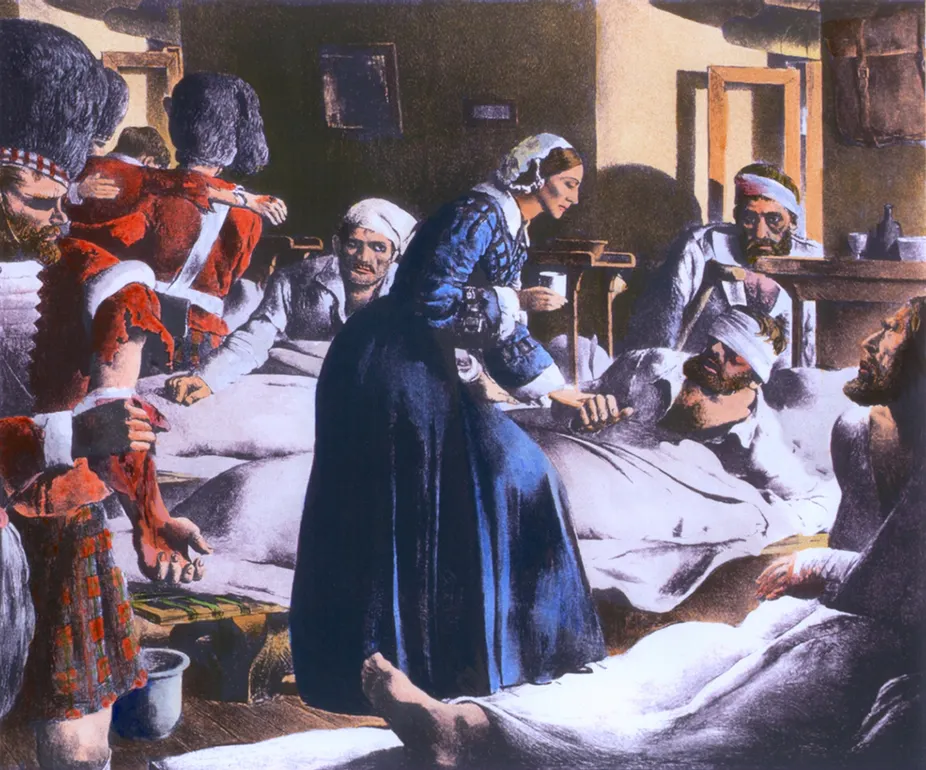The world woke up to news of the world’s largest critical care unit opening in London last week. This new 4,000 bed NHS Nightingale hospital was officially opened by Prince Charles via video link.
The facility, which will treat intensive care patients diagnosed with coronavirus, was completed in just nine days, an accomplishment that Prince Charles described as “a spectacular and unbelievable feat of work.”
Expressing hopes that the hospital would be needed for just a short period of time and by as few persons as possible, he also hoped that the hospital would be a beacon of light “in these dark times”.
Those words reminded me of the appropriateness of the naming of the hospital in honor of Florence Nightingale, who came to limelight for nursing British soldiers during the Crimean war and is widely regarded as the mother of modern nursing.
Does the name Florence Nightingale ring a bell in your mind? What comes to your mind when you hear the name Florence Nightingale?
I asked a few friends about her before starting this article and more than one person thought she was a nun in an old convent somewhere in the world, who was kind to a fault and laid her life for her fellow nuns. It is funny how all those who thought this were friends from way back in elementary school. Could this be what we were taught? Did we pick the story we had of Nightingale like we did several other stories like the Lady koi Koi (who knocked things off in the girl’s hostel)? Or Willie Willie who scared boys who have been naughty at night? I am not sure and determining this would definitely be a story for another day.
One thing though that I am sure of is this …a story of Florence Nightingale would not be complete if kindness and compassion were not part of it.
Who was Florence Nightingale and what virtues can we learn from her, especially now as we battle this global pandemic?
Florence’s virtues are too numerous to be discussed in a single document. I have however picked up a few virtues for the sake of this article and promise to bring you a follow up article on other virtues of Florence worthy of emulation.
Humility
Florence was by all standards a high-class girl. She was born into a wealthy and well-connected British family at the Villa Colombaia, in Florence, Tuscany, Italy, and was named after the city of her birth. Her family was well travelled and she through these trips was opportune to meet with fellow very well-connected people of both sexes. She could have just ‘’married well’’ which of course was all her parents ever wanted. The choice of nursing that Florence was later to choose was one considered lowly and below her social status at the time. Florence however believed that her desire for nursing was a call from God, and in defiance of her family, went on to become a prominent figure in nursing whose exceptional work immensely affected 19th and 20th-century policies concerning proper care of patients. She helped hospitals transform into cleaner places, and demonstrated that well-trained nurses and taking care of hygiene in hospitals actually helped sick people get better. Nightingale most certainly made history and is remembered as the founder of modern nursing.
Compassion
Florence Nightingale revolutionized the field of nursing and ameliorated the care that people received when they were treated at a hospital. During the Crimean War, Nightingale led a team of nurses to Turkey to help British soldiers who were sick or injured in battle. It was during this time that she earned the nickname ”The Lady with the Lamp.”
When Florence Nightingale got to the hospital, she saw that wounded men were sleeping in overcrowded, dirty rooms without any blankets. Wounded soldiers often arrived with diseases like typhus, cholera and dysentery. More men died from these diseases than from their injuries. Nightingale sent a plea to The Times so as to seek a government-led solution to the poor facilities. This was resolved after the famous engineer Isambard Kingdom Brunel was commissioned to design a prefabricated hospital. The Renkioi Hospital was built, a civilian facility made of wood that was constructed in England, and then shipped to the Dardanelles. The effort resulted in decreased rates of deaths among the soldiers who needed care. Slowly but steadily, Nightingale was making a name for herself while also giving nursing a highly favorable reputation. She did, in fact, become an icon of Victorian culture, portrayed through the persona of “The Lady with the Lamp”, doing the night rounds amongst the injured. The nickname was inspired by a paragraph in a report by The Times which read, “She is a ‘ministering angel’ without any exaggeration in these hospitals, and as her slender form glides quietly along each corridor, every poor fellow’s face softens with gratitude at the sight of her. When all the medical officers have retired for the night and silence and darkness have settled down upon those miles of prostrate sick, she may be observed alone, with a little lamp in her hand, making her solitary rounds “. What compassion one woman had.
Advocacy
Apart from laying down the foundations of professional nursing, Nightingale was a social reformer. Her input improved healthcare in each segment of British society. She had further advocated for better hunger relief in India and also helped to abolish overly severe prostitution laws towards women. In general, Nightingale opened up new opportunities for women, pushing the limits of acceptable norms for women’s position in the workforce. The long-lasting legacy she left is illustrated through the Nightingale Pledge; taken by new nurses, this is a kind of modified version of the Hippocratic Oath. The Florence Nightingale Medal is the highest international distinction a nurse can obtain, also named in her honor. The International Nurses Day is cherished all around the globe and is celebrated on her birthday.
Sacrificial
I am sure we are eager to know about Florence’s husband and perhaps children? I was too but found out from my research about her that she had none.
Now did she lack suitable suitors? Was she plain, perhaps, unpretty?
As a young woman, Nightingale was described as attractive, slender and graceful. While her demeanour was often severe, she was said to be very charming and to possess a radiant smile. She had several distinguished suitors but the most persistent suitor was the politician and poet Richard Monckton Milnes. However, in 1849, after a nine-year courtship she rejected a marriage proposal from Richard Milnes, convinced that marriage would interfere with her ability to follow her calling to nursing. She explained her reason for turning him down, saying that while he stimulated her intellectually and romantically, her “moral…active nature” called for something beyond a domestic life.
It could be said she gave up the dream of having a family of her own and enjoying the ecstasies of a romantic relationship for the gains of her calling.
What are the lessons from this story of Florence Nightingale for caregivers and all of us in the mist of the global pandemic of covid-19 today? How do we view the stay at home order by most governments to flatten the curve of this pandemic? I have read several posts on social media and other sources where people described the order as a violation of their personal rights. They threaten to defy the lockdown order and are prepared to even drag the authorities to court if they are in their way. Does this show a humble spirit? Even the scriptures describe governmental authorities as having being placed in their respective places by God.
For caregivers, what is the attitude meted towards patients and victims of this global scourge? Do we sometimes feel they are less human and treat them with contempt? Florence Nightingale could smile or frown.
Like Nightingale, we should always cloth ourselves with tender compassion when dealing with sick people, understanding that love and care have been known to bring healing in some cases where drugs have failed. I have seen several posts of people donating foodstuff and cash gifts to those who may be worst hit by the stay at home order caused by this global pandemic. This is quite commendable and should be encouraged.
Like Nightingale many healthcare workers have put off quality time with family to be at the forefront of caregiving during this global pandemic. May we always appreciate them in thoughts and deeds and remember to say a prayer of protection for them.
Nightingale advocated for the causes she believed in.
This global pandemic has revealed a serious gap in the health institutions of some nations. Are we to let this slide, turn the other side and let unscrupulous members of society make away with resources meant to equip healthcare facilities for the masses? May we be like Nightingale and use what we have to advocate for the downtrodden.
Kembet Bolton





Comments are closed.